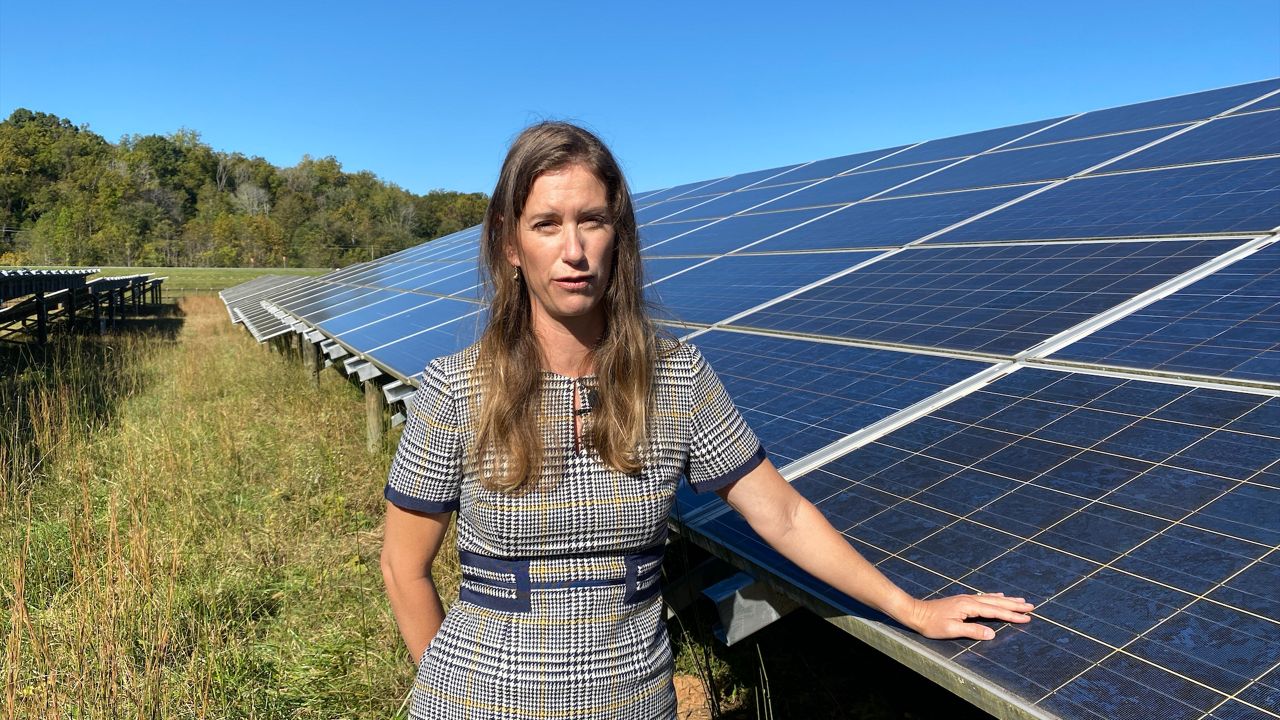PERSON COUNTY, N.C. – The CEO of a North Carolina solar company said she expects major growth in demand due to the state's new energy law.
What You Need To Know
Gov. Roy Cooper signed legislation this month to make the state carbon-neutral by 2050
The new law sets requirements for solar power purchases
Solar advocates say it's a good move overall, but it could lead to higher utility rates for some
A solar CEO said it also opens up job opportunities in rural areas where solar fields are built
Carolina Solar Energy CEO Carson Harkrader said her company has already built dozens of utility-scale solar fields in North Carolina and in other states. Over the last few years, she said her company has focused more on other states where their solar fields can sell directly to companies that want to expand their renewable energy portfolios. She said North Carolina doesn't allow customers the same flexibility.
“There are a lot of companies that need to buy 100% renewable energy to meet their corporate targets, and this bill doesn't yet provide them with a way to do that,” she said. “So I'm a bit concerned for North Carolina.”

Still, Harkrader said she expects North Carolina's solar market to boom now that a new energy bill has become law. Gov. Roy Cooper signed legislation on Oct. 13 that directs the state utilities commission to “take all reasonable steps” to cut carbon dioxide emissions by 70% by the end of the decade and achieve carbon neutrality by 2050. Fifty-five percent of energy generated from any new solar projects would have to come from utility-scale projects of the kind Harkrader's company builds. Those projects are used to generate power for the grid rather than adding them to a particular building, though Harkrader said they use the same solar panels.
That could mean more jobs for people like Harkrader's director of livestock services, Brock Phillips. Phillips and his dog, Knox, look after the sheep that inhabit more than half a dozen solar fields Harkrader has built. The sheep graze on the grass inside the enclosure. Phillips said this gives area farmers a source of income and protects delicate solar panels from damage by landscaping equipment.
“It's a good mix and can work on sites that are really rough and rugged,” he said. “Sheep don't get flat tires and break blades.”
Climate advocates including the N.C. Sustainable Energy Association said the energy bill is a positive development overall, but they have expressed concern it would allow Duke Energy to raise utility rates beyond what is needed. A spokesperson for Duke Energy said the company can't make any decisions about rates related to the energy plan before at least the end of next year, when the utilities commission must deliver a plan to achieve carbon neutrality.
Harkrader said adding solar facilities in rural areas, where land is available, could be a way to reinvest in areas that have lost tax base. She said most of the solar industry's investments to date have been in rural areas, and rural solar fields offer a place for people to work as technicians.
According to the U.S. Energy Information Agency, solar power is North Carolina's largest renewable energy source, accounting for 6% of the state's electricity generation in 2019. In all, renewables account for more than a tenth of the state's energy. For comparison, one-third of North Carolina's power comes from nuclear reactors, the leading source.



